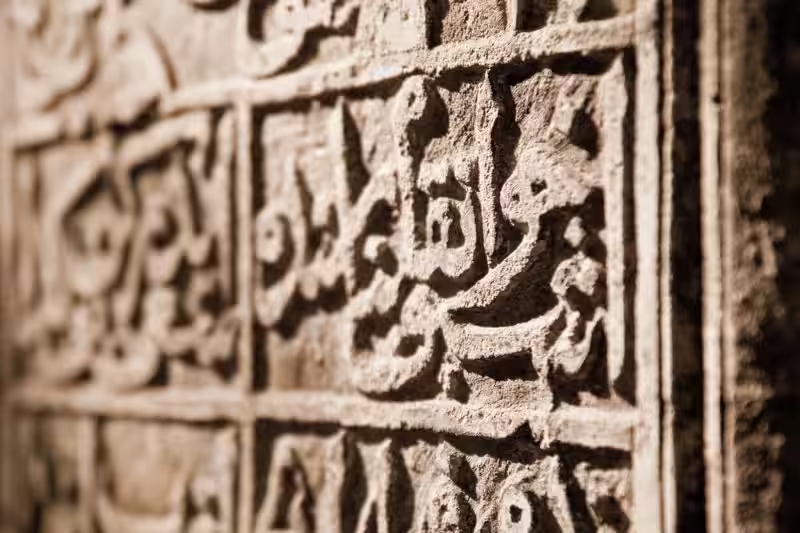
Arabic names are rich in history and meaning, often carrying cultural and religious significance. A common element in many Arabic names is the prefix “Al,” which adds a layer of depth and understanding to the name’s meaning. This article will explore the various interpretations of “Al” in Arabic names, shedding light on its diverse applications and cultural implications.
“Al” as the Definite Article
The most prevalent meaning of “Al” in Arabic names is “the.” It acts as a definite article, similar to “the” in English, signifying specificity and definiteness. For instance, “Al-Rahman” translates to “The Most Merciful,” highlighting a specific quality or attribute. This use of “Al” is prevalent in many Islamic names, often referring to divine attributes or qualities.
Imagine a name like “Ali Al-Amin.” Here, “Al-Amin” means “The Trustworthy,” implying that “Ali” possesses this particular characteristic. This use of “Al” allows for the expression of specific traits and virtues associated with the person bearing the name.
“Al” Indicating Origin or Ancestry
Besides denoting a quality, “Al” can also indicate a person’s origin or ancestry. This is particularly evident in surnames. A name like “Muhammad Al-Masri” means “Muhammad the Egyptian,” signifying that the individual hails from Egypt. This usage is commonly encountered in Arabic surnames, providing a clear indication of the person’s ancestral roots.
Take, for example, the surname “Al-Tikriti.” It refers to someone originating from Tikrit, a city in Iraq. These surnames not only identify the individual’s origin but also connect them to a specific geographic location and its associated cultural heritage.
“Al” Denoting Profession or Occupation
“Al” can also be used to denote a profession or occupation. “Al-Kimyai,” for example, translates to “the chemist,” suggesting that the person bearing this name is involved in the field of chemistry. This usage is less common than the others but still prevalent in some Arabic names.
Imagine a name like “Ibrahim Al-Najjar” (Ibrahim the Carpenter). This name directly links the individual to a specific profession, providing insight into their skills and potential career path. This usage adds a practical and meaningful dimension to the name’s interpretation.
“Al” as Part of a Larger Phrase
It’s important to remember that “Al” is often part of a larger phrase within an Arabic name, and its interpretation must take context into account. “Al-Hadi,” for instance, means “The Guide,” implying a person who serves as a leader or teacher.
Understanding the full phrase is crucial to grasp the true meaning of the name. For example, “Al-Qadr” means “The Destiny,” suggesting a person with a strong influence or power. To comprehend the meaning of “Al” in a name, it’s essential to analyze the entire phrase and its context.
“Al” as a Symbol of Cultural Identity
Beyond its literal meaning, “Al” holds cultural significance, representing a strong sense of identity and belonging. It acts as a bridge connecting individuals to their heritage, values, and traditions. This cultural significance adds a layer of depth and emotion to Arabic names, transcending mere linguistic interpretation.
In a world increasingly intertwined, understanding the significance of “Al” in Arabic names fosters cross-cultural understanding and appreciation. It encourages a deeper understanding of the individual’s cultural background and the values they hold dear.
The prefix “Al” in Arabic names is far more than just a simple word. It’s a window into a rich linguistic and cultural tapestry, revealing a person’s identity, origin, and values. Whether it signifies a specific quality, a geographic location, or a profession, “Al” adds a layer of depth and meaning to Arabic names, making them more than just a series of letters. By understanding the nuances of “Al” in Arabic names, we gain a deeper appreciation for the beauty and complexity of the Arabic language and its cultural heritage.
Frequently Asked Questions about “Al” in Arabic Names
What does “Al” mean in Arabic names?
The “Al” in Arabic names often serves as a definite article, similar to “the” in English. It can be used to indicate origin, profession, or character traits. For example, “Ahmed Al Masri” means “Ahmed the Egyptian,” while “Yakoub Al Jarrah” translates to “Jacob the Surgeon.” Sometimes, “Al” is part of the first name, such as in “Salah Al Din” (righteousness of the faith).
Can “Al” have other meanings besides “the”?
Yes, “Al” can also represent a different word, “Aal,” pronounced with a long “a” sound. “Aal” signifies “family,” “clan,” or “tribe.” This is seen in names like “Abdelaziz Aal Saud” (from the Saud tribe) and “Hamad Aal Thani” (from the Thani tribe).
Is there a difference between “Al” and “El”?
It’s important to note that “El” can be used interchangeably with “Al,” especially in Egypt and some North African countries. This difference in spelling is due to pronunciation variations.
How do I know which meaning of “Al” is used in a specific name?
Understanding the context is crucial for interpreting its meaning correctly. Look at the full name and consider the individual’s origin or profession. If it’s part of a larger phrase, try to decipher the phrase’s meaning.
- “Al” means “the” in Arabic, similar to the English definite article.
- It’s commonly used in names, surnames, and place names.
- Surnames starting with “al” often indicate ancestral origin (e.g., “al-Tikriti” means “the person from Tikrit”).
- “Al” can also be part of a larger phrase denoting a quality or attribute (e.g., “Al-Rahman” means “The Most Merciful”).
- The meaning of “Al” depends on the specific phrase it’s part of.
- “El” can be used interchangeably with “Al,” particularly in Egypt and North Africa.
- “Aal” (pronounced with a long “a”) signifies “family,” “clan,” or “tribe.”








